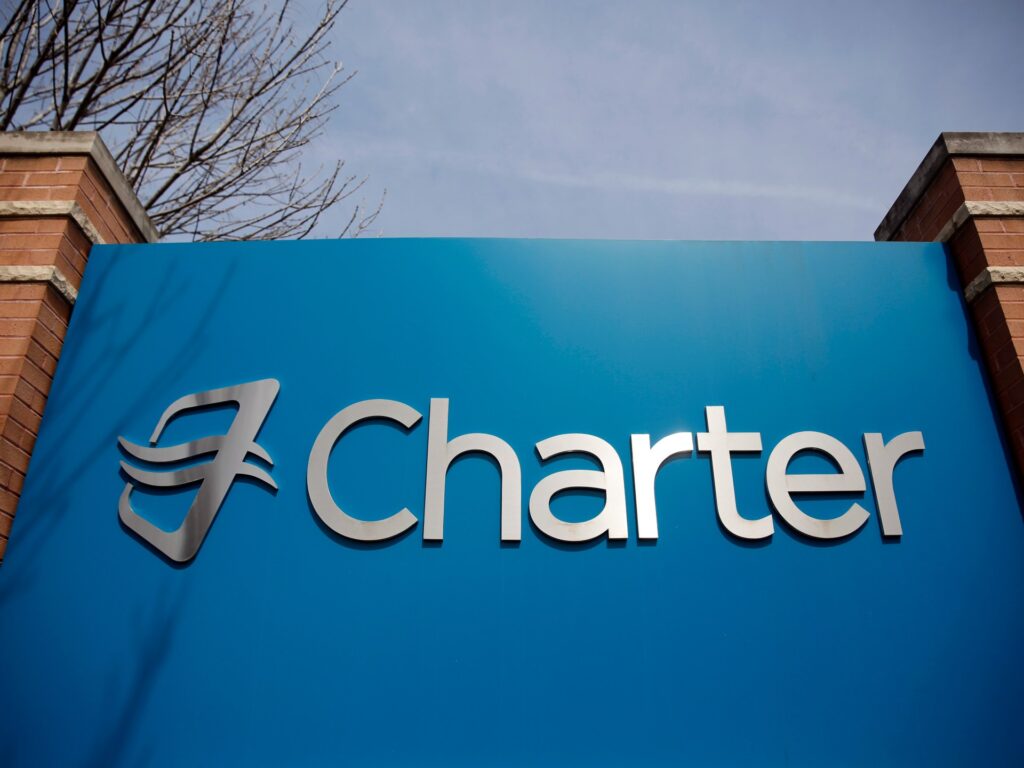The proposed merger, which would create the largest cable provider in the US, could face antitrust hurdles.
Charter Communications has agreed to buy its rival Cox Communications for $21.9bn in a deal that would unite the two of the largest cable and broadband operators in the United States as they battle streaming giants and mobile carriers for customers.
The deal, announced on Friday, comes more than a decade after the companies reportedly abandoned an earlier merger attempt. Since then, pressure has intensified on cable companies, with wireless carriers attracting broadband customers with aggressive plans, while millions ditch traditional pay-TV for streaming.
The companies said they expect to realise $500m in cost savings within three years of the deal’s expected close in mid-2026.
Under the cash-and-stock deal, Charter will take on about $12.6bn of Cox’s net debt and other obligations, giving the transaction an enterprise value of $34.5bn.
Cox Enterprises, the family-owned parent of Cox Communications, will own about 23 percent of the merged entity, with its CEO Alex Taylor serving as chairman.
The combined firm will rebrand as Cox Communications within a year of the deal’s close, with Charter’s Spectrum being the consumer-facing brand. It will keep its headquarters in Stamford, Connecticut, while maintaining a big presence at Cox’s campus in Atlanta, Georgia.
The merger with Cox – one of the biggest deals globally this year – will aid Charter’s push to bundle broadband and mobile services, helping it fend off competition from carriers.
Analysts have said Charter’s strategy of combining internet, TV and mobile services into a single, customizable package has shown merit, but it needs scale as cable firms rely on leasing network access from major carriers to offer mobile plans.
“This combination will augment our ability to innovate and provide high-quality, competitively priced products,” said Charter CEO Chris Winfrey, who will head the combined company.
The Spectrum-owner has a market value of nearly $60bn.
On Wall Street, Charter’s stock rose on the news of the potential merger. As of 12:00pm ET (16:00 GMT) the stock is up 1.66 percent since the market opened.
Antitrust concerns
The merger will be among the first major tests of M&A regulation under the administration of US President Donald Trump, as it would create the largest US cable TV and broadband provider with about 38 million subscribers, surpassing current market leader Comcast.
It will likely be reviewed by the US Department of Justice’s antitrust division. Assistant Attorney General Gail Slater, who leads the division, has made it clear she intends to focus on mergers that decrease competition in ways that harm consumers or workers.
EMarketer analyst Ross Benes said the merged entity would be the largest US pay-TV operator, but the “ISP (internet service provider) side of the business is more consequential” for consumers, potentially positioning it as a regional monopoly.
Winfrey echoed Trump’s “America First” employment priorities and said the deal would bring Cox’s customer service jobs back from overseas, but he did not specify how many. Charter’s customer service teams are already based entirely in the US.
“This is the first big corporate move (in the same sector) to happen under the new Trump administration so … will set the tone for other potential moves or not,” said PP Foresight analyst Paolo Pescatore.
Charter and Cox had also discussed a merger in 2013 before shelving the plan, according to media reports. But speculation had risen again in recent months after cable billionaire John Malone said in November Charter should be allowed to merge with rivals such as Cox, shortly after Charter agreed to buy his Liberty Broadband.
Liberty Broadband shareholders will receive direct interest in Charter under the terms of the deal with Cox.
